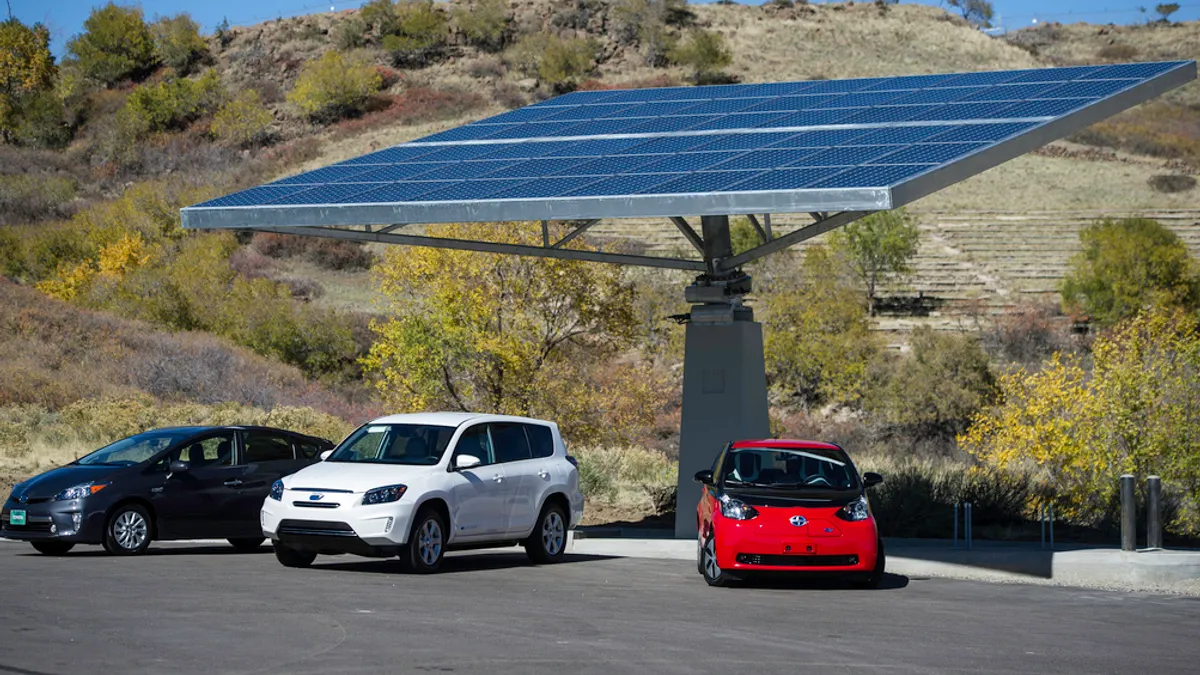Dive Brief:
- Arizona Corporation Commission Staff on Friday published a proposed order that, if approved by regulators, would create an electric vehicle (EV) policy implementation plan for the state. The proposed order could be discussed at upcoming commission open meetings on May 21 and 22.
- Regulators in 2018 adopted a new policy encouraging investor-owned utilities to develop rates and pilot programs supporting EV programs and infrastructure, including charging stations.
- That policy was approved in December with a 4-1 vote. Commissioner Justin Olson, the sole vote against the EV policy, continues to lobby against the commission's EV efforts.
Dive Insight:
The commission's December EV policy statement directed staff to develop an implementation plan, intended to provide guidelines on pilot programs, rate design, cost recovery and other issues. Approval of the implementation plan will effectively be a final vote on the state's new policy, and Olson is trying to rally consumers to his side.
In an op-ed published Sunday on The Arizona Republic web site, the commissioner told readers, "if your priority is an affordable utility bill, you might want to tell my colleagues."
"Ratepayer-funded subsidies for electric vehicles will drive up your power bill. A ratepayer-funded subsidy for this industry is not necessary. It's not justified. And it is not constitutional," Olson wrote.
Arizona's policy would allow Tucson Electric Power to propose programs and incentives for EV drivers. Olson had also proposed an amendment to "eliminate the electric vehicle subsidies" in TEP's energy efficiency plan, but said that was voted down by the other four commissioners.
"The commission is expected to vote later this summer on a final version of its electric vehicle policy," Olson wrote. "If you do not want your utility rates to increase to help defray the cost of affluent Arizonans owning new electric vehicles, now is the time to voice your opposition."
But according to Plug in America, EVs could help Arizona consumers see annual savings of up to $176 per household by 2050, thanks to a 5.5% projected rate decrease. Staff of the ACC previously identified nine benefits to EV adoption, from rate designs that reduce peak load to increased grid reliability, lower service costs to consumers and lower healthcare costs.
The implementation plan calls for utilities to propose EV pilots by July 1, and encourages them to "focus on infrastructure, education and outreach, make-ready, rate design, incentives/rebates, and cost recovery." Utilities proposing pilots are also required to submit a "comprehensive transportation electrification plan" and develop tariffs that incentivize customers to charge during off-peak hours.
Comments on the proposed decision are due May 20.















